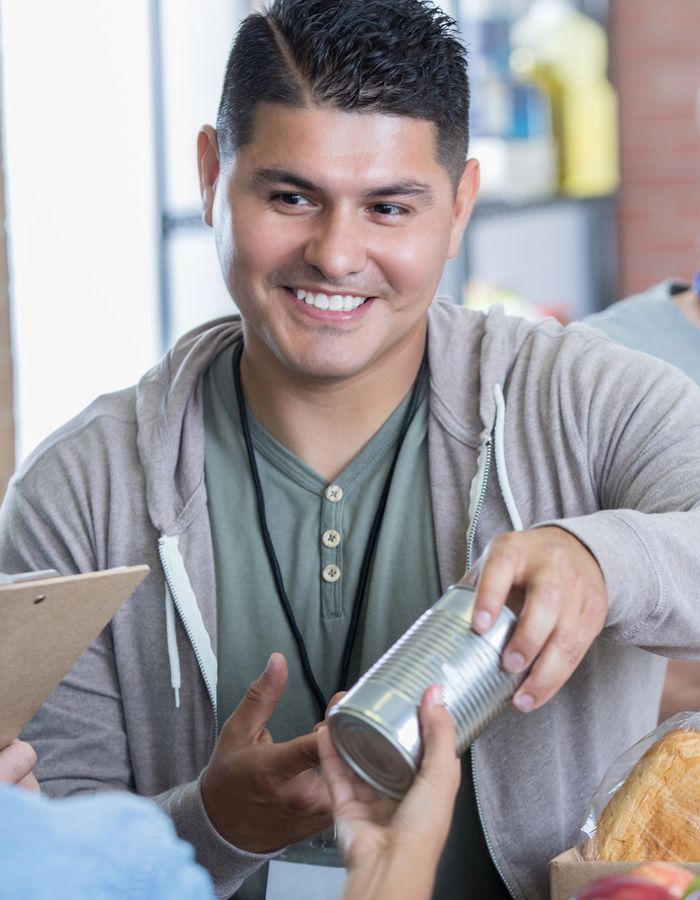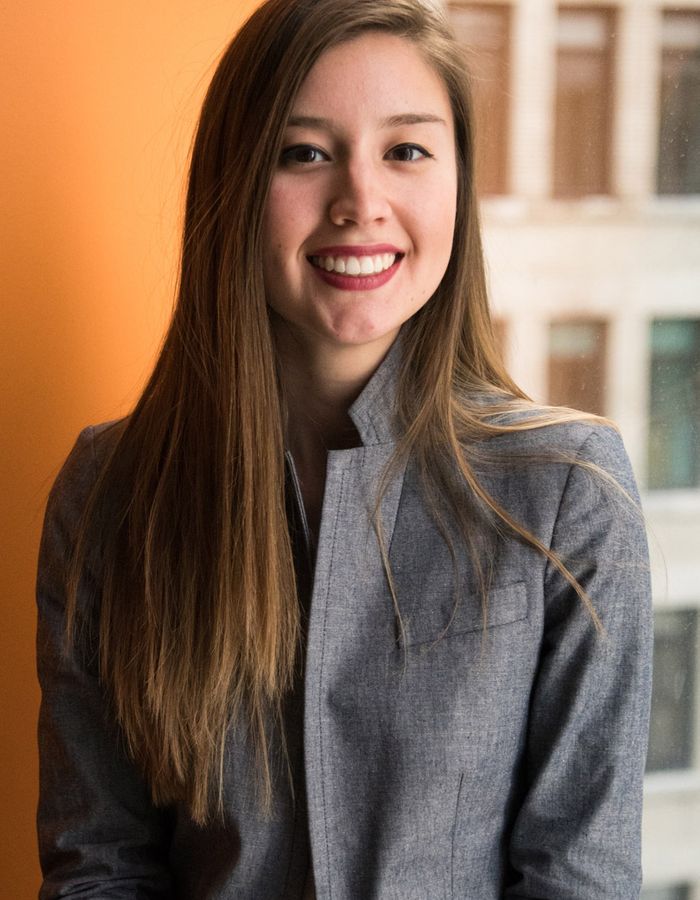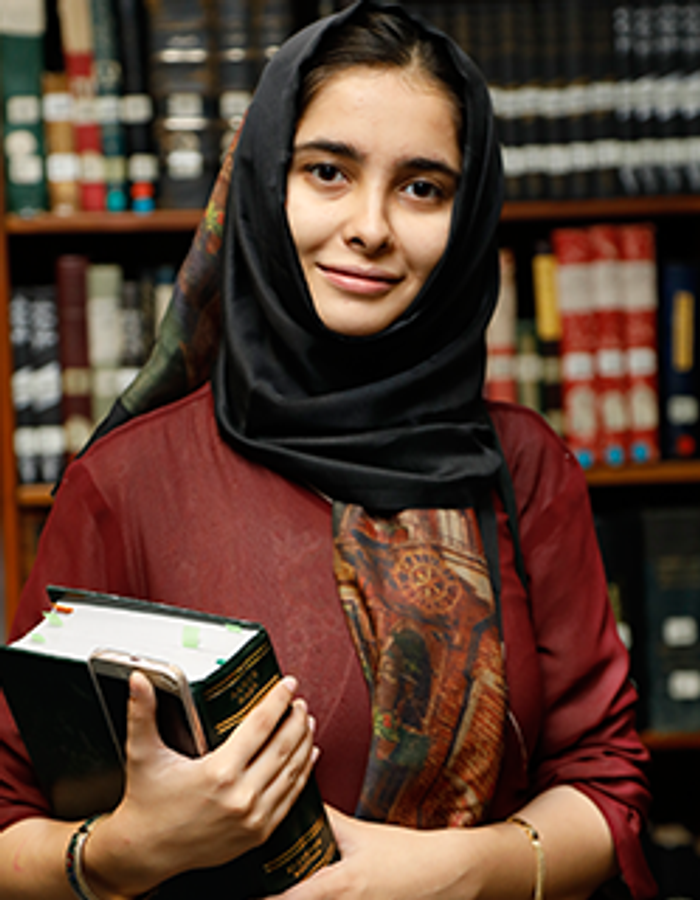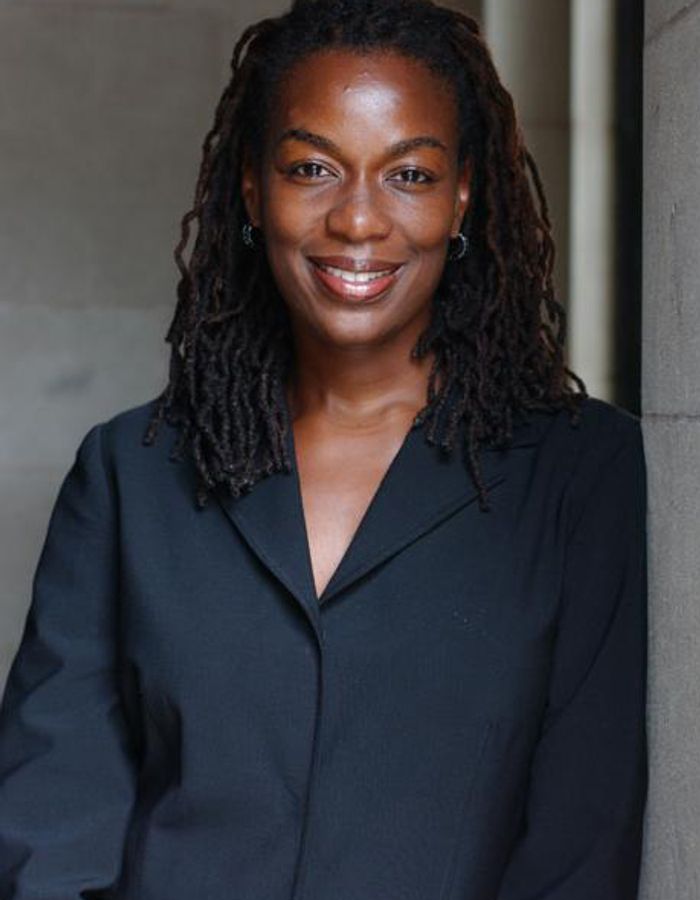How to build trust online as a place-based foundation
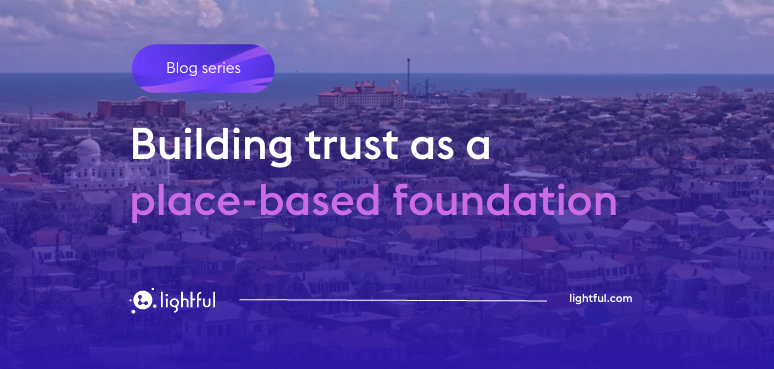
The Harris and Eliza Kempner Fund is a private, place-based family foundation based in Galveston, Texas. Their mission is to invest in the long-term success, sustainability, and well-being of Galveston and its residents. They do this by funding local organisations that are integral to the community, addressing historic disparities, increasing access to opportunities, and contributing to the cultural fabric of Galveston.
We partnered with The Harris and Eliza Kempner Fund to launch a Lightful BRIDGE cohort supporting their grantees to improve their digital storytelling and fundraising skills. As a place-based funder, they have very close relationships with their grantees, so we wanted to find out more about the role of trust in everything they do.
We asked Lauren Scott, the Executive Director at the Harris and Eliza Kempner Fund, to share her thoughts on how private place-based foundations can build trust with their grantees at a local level – from the opportunities that come along with being part of a small community, to the importance of embracing curiosity and learning.
Let’s find out more.
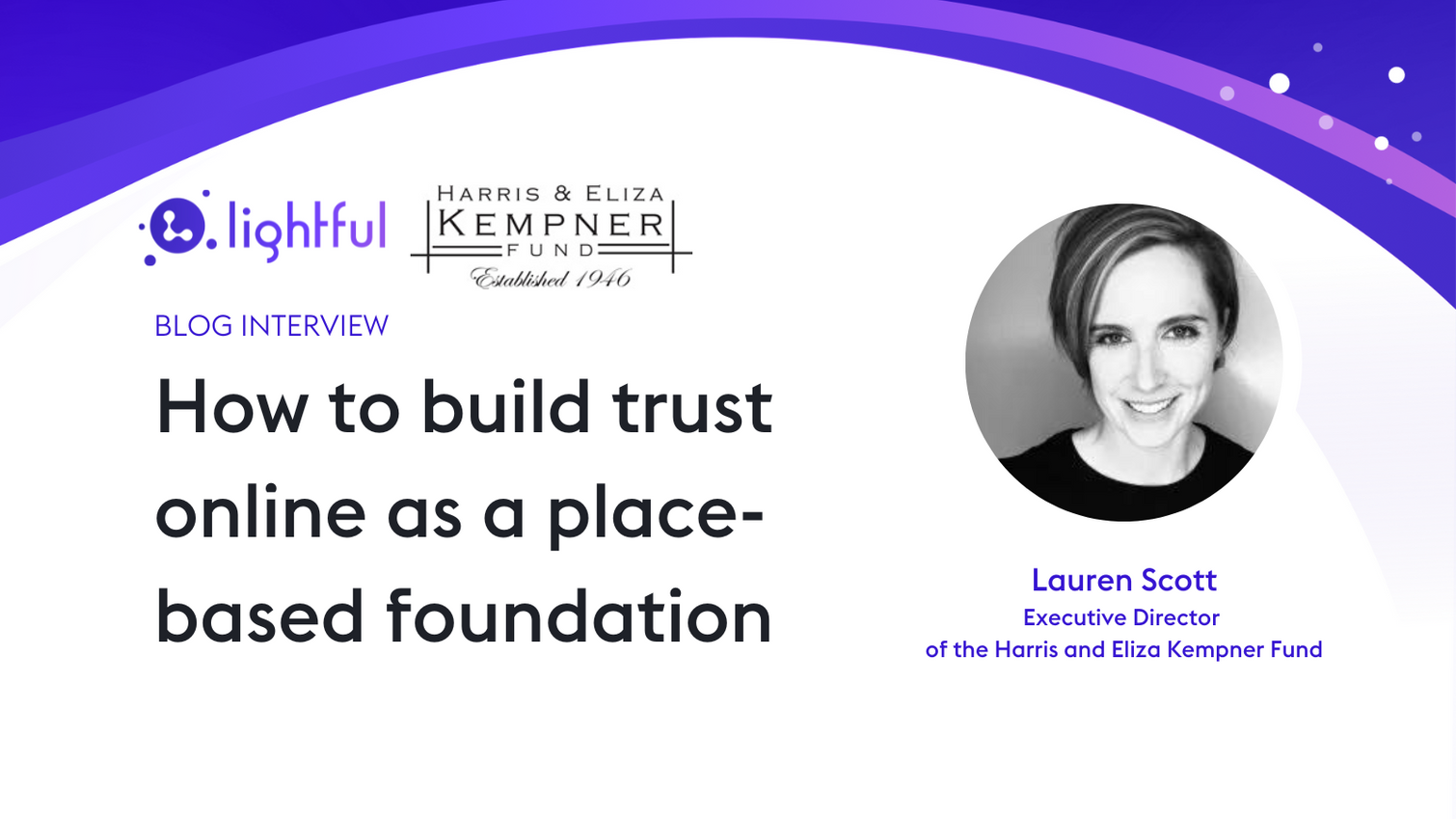
What role does trust play in the nonprofit sector, and for grantmakers specifically?
Trust is a vital element in the nonprofit sector, but it can be challenging to establish due to the inherent power imbalance between philanthropy and organisations doing mission-driven work. While nonprofits are responsible for building, innovating, and providing critical services, they often need to rely on philanthropic organisations for funding. This creates a power dynamic that can undermine trust.
Philanthropy holds the power in this dynamic, controlling the funding that nonprofits need to carry out their work effectively. It takes deliberate effort to build trust and mitigate power imbalances for these two parties to work together effectively.
As funding staff or board members, it is essential to understand the barriers and accelerators for those doing important work, such as shaping society and caring for vulnerable populations. Without this understanding, it can be challenging to direct funding in a way that truly supports this work. Furthermore, if leaders of organisations are unable to share the reality of their work or do not feel comfortable doing so, as funders we are missing the realness of the work and the barriers that are preventing progress.
Are there additional aspects a private family foundation and place-based funder should consider when building trust?
Issues surrounding demographics and identity such as race, class, or gender, are always part of the conversation in the boardroom or out in the community. That’s definitely an important aspect to be considered as it influences everything - how individuals identify and express themselves, and what this means for culture in the community and the institution.
One of the unique things about place-based philanthropy is the intimacy it brings, especially because we are not operating on a large scale like some of the larger counties in Texas. We have an intimacy and closeness that has been established through our relationships. We are in close proximity to most of our grantees, and this can be beneficial in fostering stronger relationships. However, it can also create challenges such as the dual roles and biases that can show up in our work. It's essential to have self-awareness and objectivity to ensure that our biases do not impact our decision-making.
As an organisation, we have clear priorities and criteria by which we gather information and understand the community. We use data along with the community's voice to make decisions, ensuring that we're not leading decisions based solely on individual experience. The work we've been doing organisationally involves thinking about the community as a whole and understanding who the Galveston of today is. By balancing our experience with objectivity and community feedback, we can better support the community and ensure our mission is fulfilled.
What sort of tools and techniques do you use to build trust with your grantees?
One of our main approaches is to use data to understand the needs and desires of our grantees. As a small community, we recognise that some organisations may not have the infrastructure to collect and analyse data, so we often partner with other funders or organisations to create that infrastructure. By engaging in collective action or co-funding with other foundations, we gather community voices and gain a deeper understanding of the work and the sector.
Some of the most important tools that have guided our staff come from the Trust-Based Philanthropy Project and their approach to grantmaking. One of them has been around support ‘beyond the check’ and decreasing the administrative burden, which has been invaluable to us. The use of online tools allows us to decrease paperwork burden and deepen our understanding of the work in order to help nonprofit leaders, especially in smaller communities with lean staff teams.
Through our optional reporting, we’ve heard about challenges that organisations face, particularly around capacity and access to high-quality, timely and practical professional development and tools. Digital literacy, branding, storytelling, and fundraising are common themes that come up.
The Lightful BRIDGE programme was the perfect opportunity for us to support a number of grantees with a learning experience to provide them access to tools and learning opportunities in various formats, from live events to a library of resources. Over time, they are going through this together and we have an opportunity to support a shift in the sector for the community and help connect leaders and staff who may not know each other. A number of leaders reached out to us to say how exciting this experience was for them. It’s not just about the learning but also about the community and connecting with other organisations.
These are opportunities that we can’t always have in-person. Not everyone learns in the same way so these online virtual spaces can become very powerful tools not only for online learning but also for networking. It’s this connectivity that can amplify the work at these organisations.
What are the challenges of building trust online for your grantees?
Building trust online presents unique challenges compared to building trust in person. While nothing can replace the energy and connections that happen when people are physically together, online interactions have become increasingly important.
One of the biggest challenges in building trust online, particularly for smaller nonprofits, is around capacity and having the necessary resources to run an organisation.
Many nonprofits are leanly staffed and rely heavily on individuals with specialised skills in specific areas, such as accounting or fundraising. These individuals may join the nonprofit space to make a difference and may have a deep well of knowledge around their organisation's mission work, but they may not have the full complement of skills needed to run an organisation or build a programme.
Furthermore, raising funds online presents a different set of challenges. It can still be difficult for many people to know how to ask for money effectively or build individual donor campaigns. Learning how to build trust with potential donors online and effectively communicate an organisation's mission and impact is a skill that requires a different kind of learning and practice.
If you could give just one piece of advice to other family or place-based foundations, what would it be?
One important concept is to uncouple due diligence from curiosity and learning. Due diligence is essential, but it should not be the only aspect of the grant-making process. It's important to lean into learning and understanding the work that our grantees are doing, the challenges they are facing, and the impact they are making. This can be challenging, as most of the mission spaces that foundations are funding are complex and hard to solve. Therefore, leaning into the space of learning has been the most important thing for me.
One concrete example is conversational reporting, a concept we learned from another foundation that does incredible trust-based philanthropy work. Conversational reporting is a series of guiding questions that open up a conversation, rather than the traditional reporting format of numbers and metrics. By asking questions such as, "What are the big organisational challenges you are facing?" or "What unlocked or clicked for you this year?" we allow them to talk as experts and share more details about their work. Through these conversations, we gained greater insights about the challenges and opportunities in the community and sector than we have through reading grant reports over the past two years. It is simply about leaning into curiosity and learning, rather than focusing only on due diligence.
Key takeaways
- Trust is a vital element in the nonprofit sector, but it can be challenging to establish due to the inherent power imbalance between philanthropy and organisations doing mission-driven work.
- As funding staff or board members, it is essential to understand the barriers and accelerators for those doing important work, such as shaping society and caring for vulnerable populations.
- Online virtual spaces can become very powerful tools, not only for online learning, but also for networking. It’s this connectivity that can amplify the work at these organisations.
- For place-based foundations, being in close proximity to most of the grantees can be beneficial in fostering stronger relationships. However, it can also create challenges such as the dual roles and biases that can show up in our work.
- Learning how to build trust with potential donors online and effectively communicate an organisation's mission and impact is a skill that requires a different kind of learning and practice.
- It's important to lean into learning and understanding the work that grantees are doing, the challenges they are facing, and the impact they are making.
Follow the Harris and Eliza Kempner Fund
The Harris and Eliza Kempner Fund envision a Galveston where all citizens thrive for generations to come, supported by a trusted partnership to achieve the community’s vision.
By funding local organisations that are integral to the community, they are working towards long-term success, sustainability and resilience for everyone at Galveston.
For more information, visit their website.
Subscribe to our newsletter

This post is part of a series we’re producing with some of the great foundations, philanthropists, institutions and nonprofits we work with. If you want to be sure to catch the next ones, please subscribe to our newsletter and follow us on LinkedIn.
Latest articles
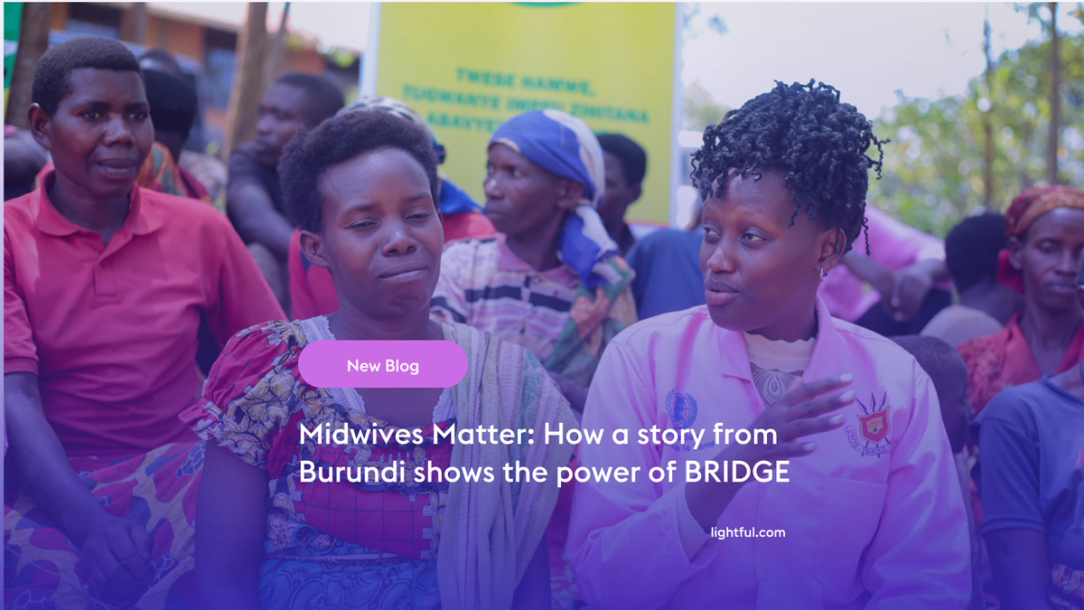
Over the past year, Lightful and the International Confederation of Midwives (ICM) have supported Midwives Associations across Africa, South Asia and the Eastern Mediterranean to build their digital confidence through our BRIDGE programme. These organisations were starting from very different places, but all shared the same goal: to use digital tools to strengthen their voice, raise their visibility and advocate for better outcomes for women and babies.
Related posts
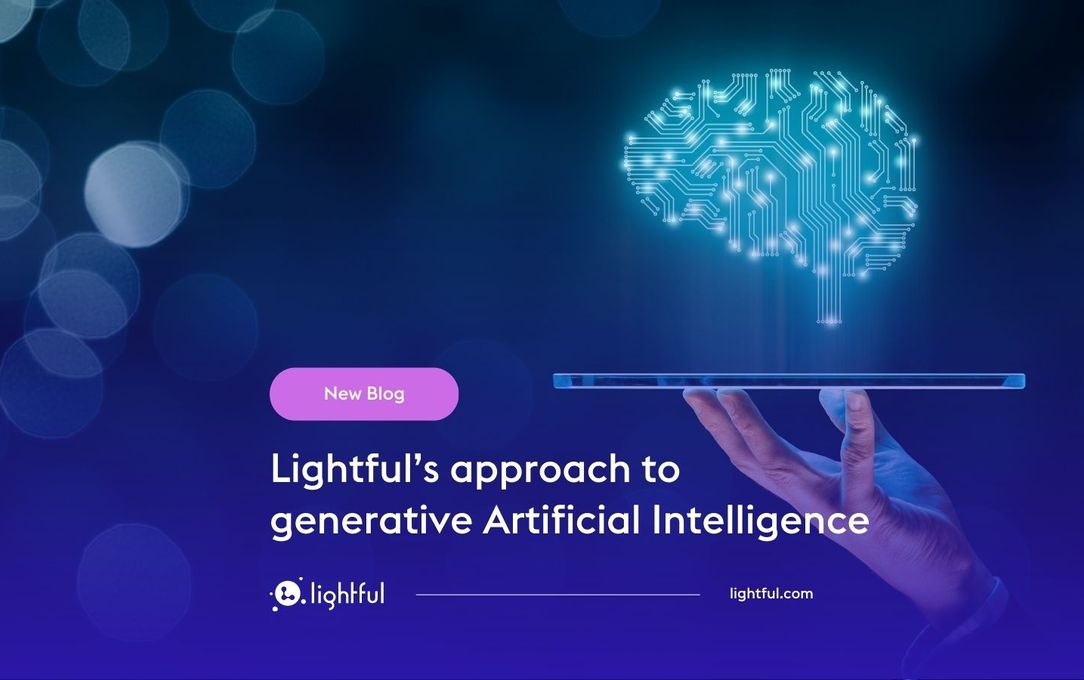
At Lightful, our commitment to supporting nonprofits in their mission to do the greatest good drives our exploration of the latest technological advancements.
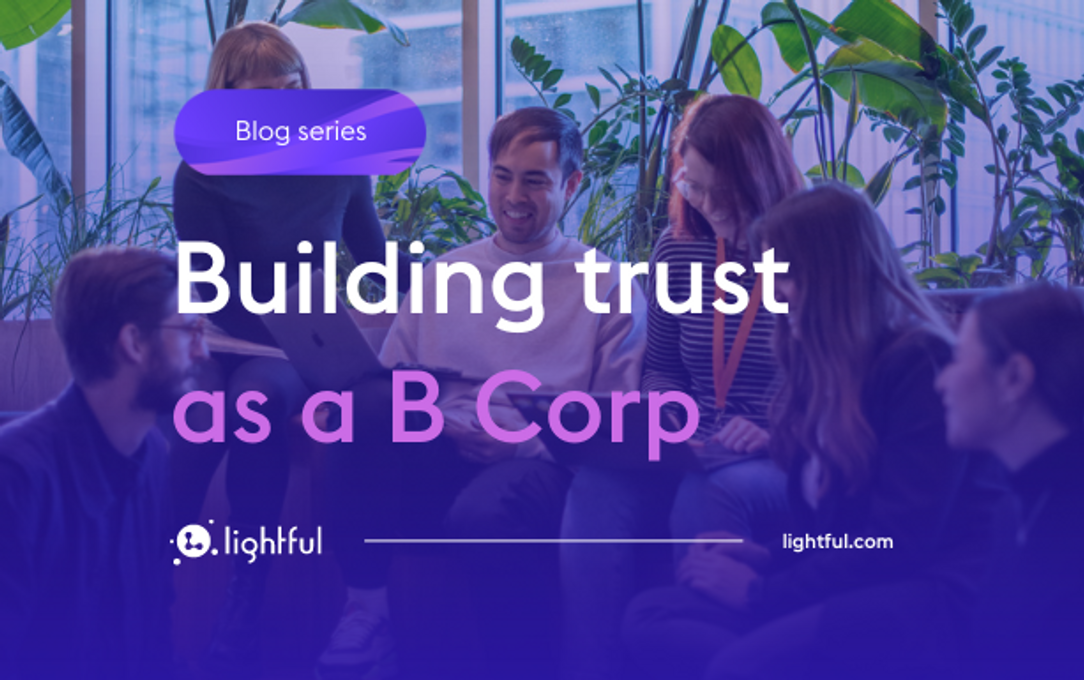
At Lightful, we believe that trust is a key foundation for our economy and society. Building Trust is at the heart of what we do at Lightful. Our three Co-Founders, Carlos Miranda, Vinay Nair, and Johnny Murnane, all arrived at this conclusion through quite different journeys. They had various backgrounds in impact investing, tech and consulting with the charity sector. They would work with incredible nonprofits, but when they engaged with them online, their websites and social media presence didn’t do justice to the power and impact of their organisation. If you visit a website with out of date information, or broken links etc, you are not filled with confidence that the organisation is trustworthy. You wouldn’t buy from a retailer with a website like that - so why would you donate money or promote the cause? It makes it feel a bit unreliable, and so lending your support or funds could be risky. This creates a real problem for nonprofits, limiting their reach and ability to raise unrestricted funds from everyday donors and others. They set up Lightful to tackle this key problem of building trust.
See who we help
Contact us
Want to learn more?
Email Jonathan and start a conversation



